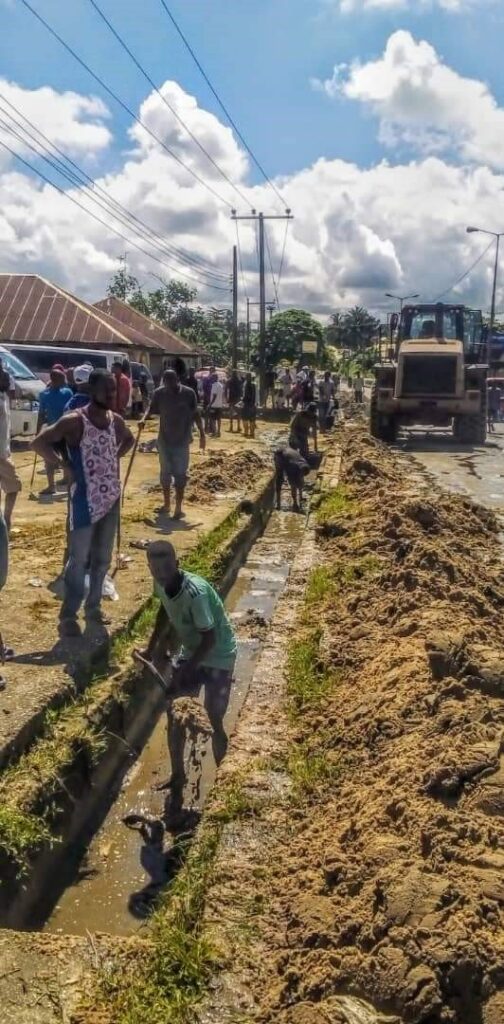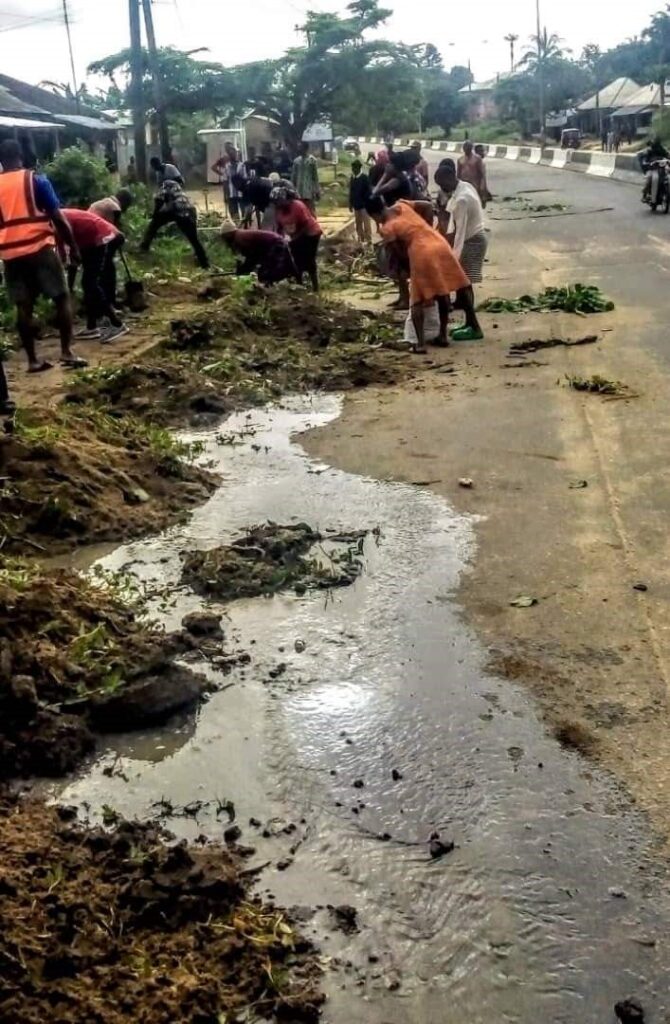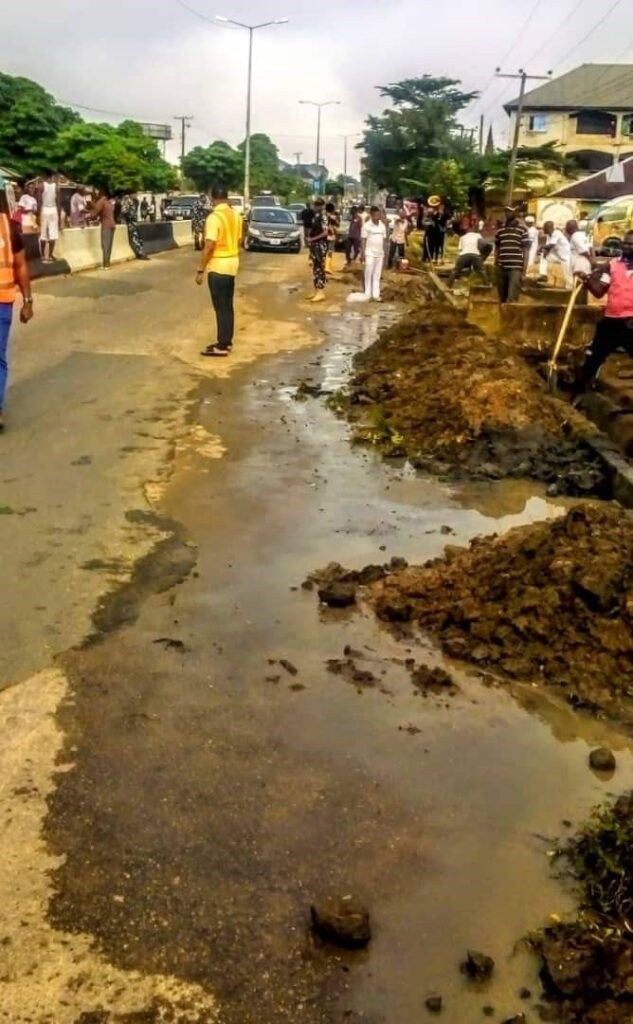
NES Akwa Ibom State Chapter in partnership with Passion FM 94.5/ADBN, September Environmental Sanitation.
NES Akwa Ibom State Chapter in partnership with Passion FM 94.5/ADBN, September Environmental Sanitation.
 A photo showing NES members clearing the drainage.
A photo showing NES members clearing the drainage.
This month’s choice is to create practical awareness and education on the need to desilt drains in order to improve hydraulic flow of urban runoffs, pick-up plastic wastes, and most importantly bring to public attention the devastations and severe land degradation faced by Nsukara Offot Community, as a result of the effect of active gully erosion that has split the village into two.
 A photo showing NES members clearing the drainage.
A photo showing NES members clearing the drainage.
On close observation, this was found to be the results of improper discharge of storm water in natural water channel and poorly terminated drains. What we have here is an ecological, environmental, economic and humanitarian disaster.
 A photo of NES members during the sanitation exercise.
A photo of NES members during the sanitation exercise.
Ecological and humanitarian disaster refers to a catastrophic event that causes significant damage to the environment and human lives. Such disasters can be caused by natural phenomena such as earthquakes, hurricanes, floods, and wildfires, or human activities such as oil spills, deforestation, and industrial accidents.
 A photo showing media staff covering the exercise.
A photo showing media staff covering the exercise.
The consequences of ecological and humanitarian disasters can be devastating. They can lead to the loss of homes, displacement of people, destruction of infrastructure, and loss of lives. The environmental impact can be long-lasting, affecting ecosystems, wildlife, and natural resources.

In addition to the immediate effects, ecological and humanitarian disasters can also have long-term consequences. They can lead to food and water shortages, increased poverty, and health problems. The aftermath of such disasters can also lead to social and political instability, making it difficult for affected communities to recover.
